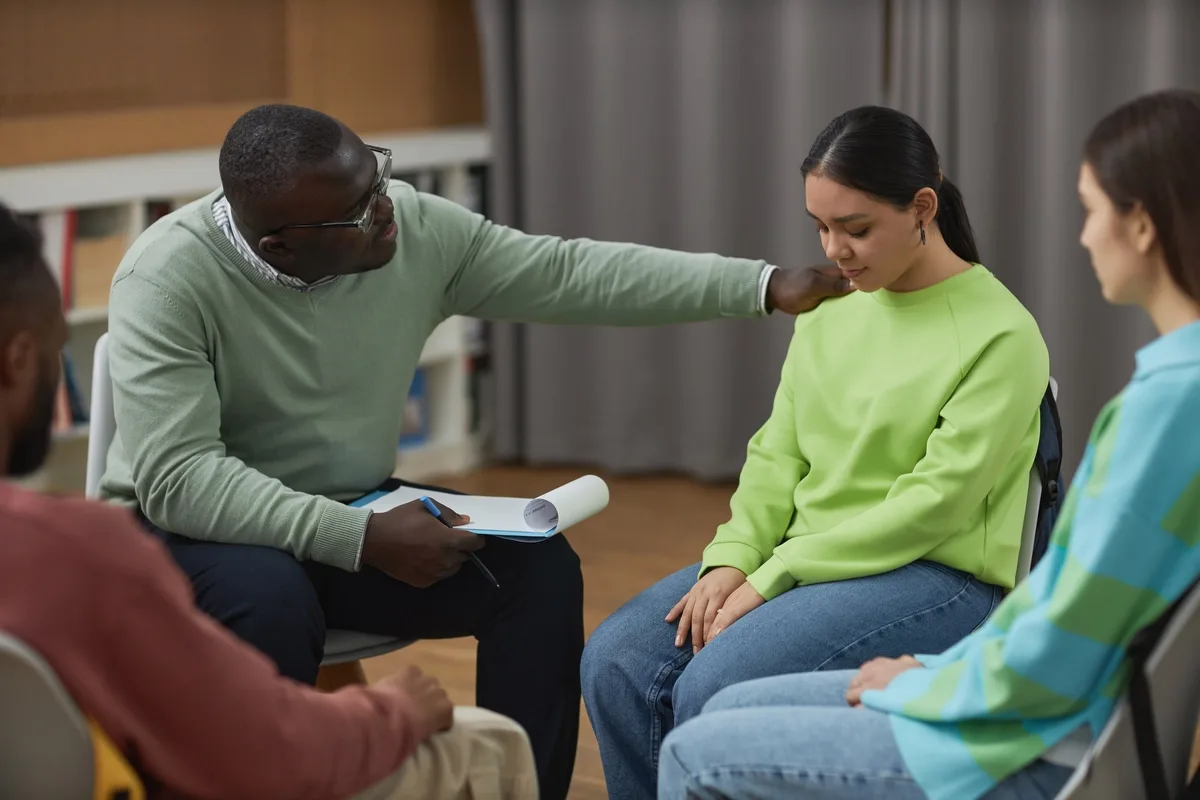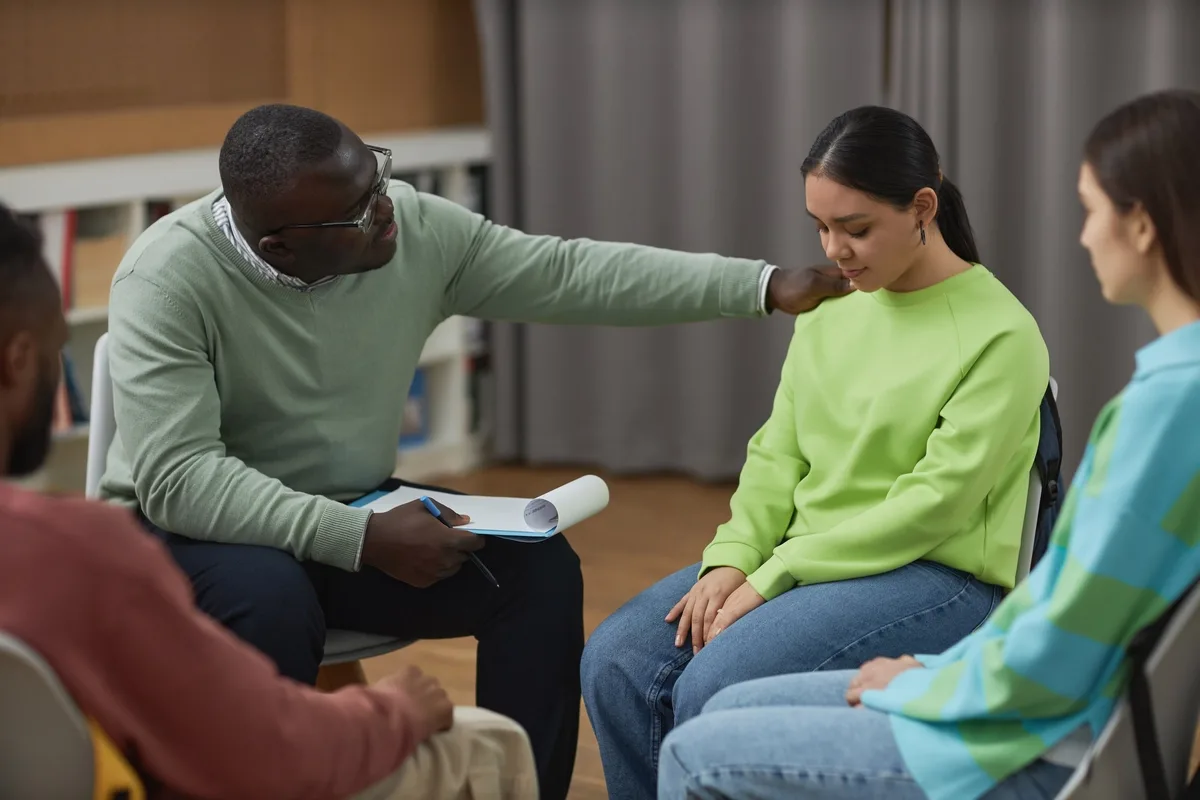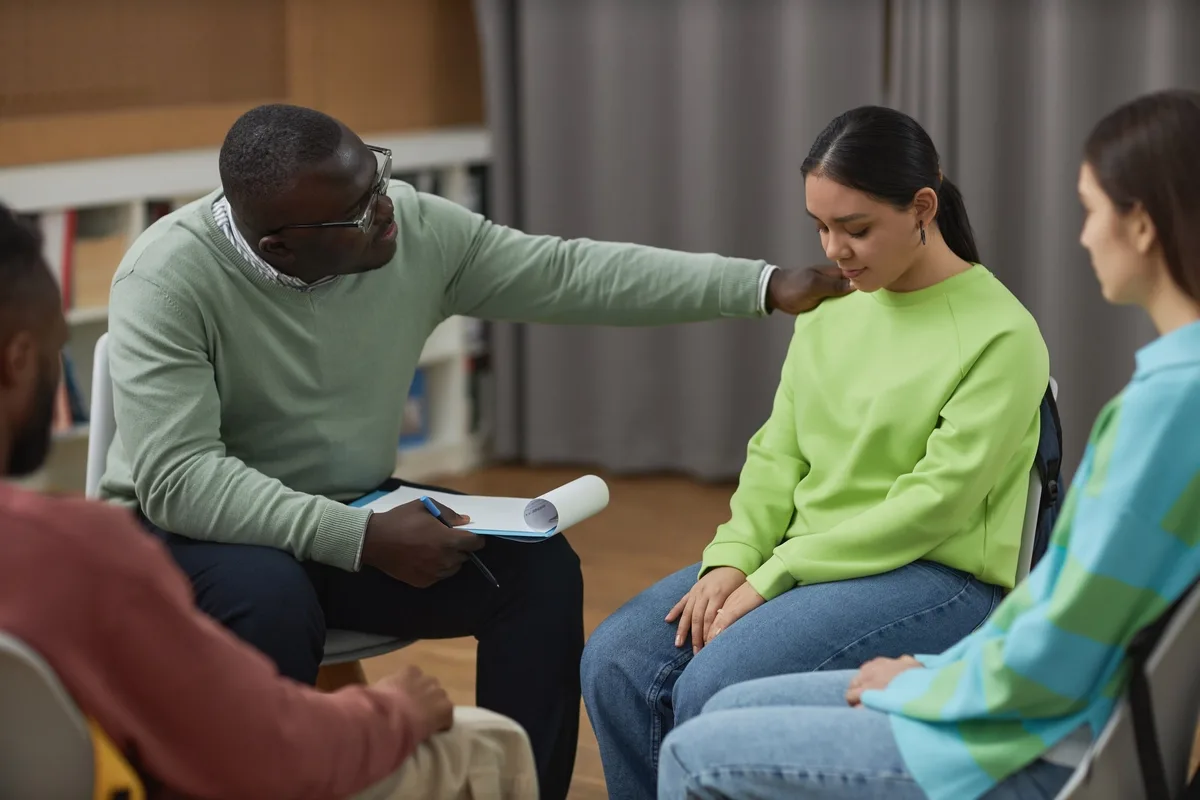24/7 Helpline:
(866) 899-221924/7 Helpline:
(866) 899-2219
Learn more about Aftercare Support centers in Cheneyville
Aftercare Support in Other Cities

Other Insurance Options

MHNNet Behavioral Health

Sutter

CareFirst

United Health Care

Group Health Incorporated

Access to Recovery (ATR) Voucher

WellPoint

Health Net

GEHA

Multiplan

CareSource

Carleon

Choice Care Network

Meritain

BHS | Behavioral Health Systems

American Behavioral

Horizon Healthcare Service

Health Partners

Excellus

EmblemHealth

Edgefield Recovery Center
Edgefield Recovery Center is a drug and alcohol rehab center located in Cheneyville, LA. They provid...

Healing Springs Ranch
Located in Tioga, Texas, Healing Springs Ranch is a center for treating addiction and mental health ...

















Dellwood Recovery Center
Dellwood Recovery Center is a private rehab located in Mora, Minnesota. Dellwood Recovery Center spe...

Serenity Manor
Serenity Manor is a private rehab located in Mora, Minnesota. Serenity Manor specializes in the trea...

New Mexico Behavioral Health
New Mexico Behavioral Health is a public rehab located in Mora, New Mexico. New Mexico Behavioral He...

















































































































































































































































































































































































































